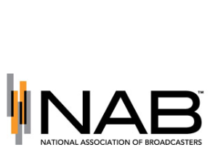
TV broadcasters are aggressively fighting the FCC’s requirement that television station local public files be put online. Three days ago, the National Association of Broadcasters filed with the U.S. Court of Appeals seeking an injunction against the FCC to keep the August 2, 2012, effective date for such online posting from occurring.
The most significant argument that the NAB is making at the Court of Appeals is that the nationwide Internet publication of political lowest unit charge data will effectively transform the television advertising market by giving every advertiser and agency, as well as the competition, pricing information that will put television stations at a competitive disadvantage.
It can be expected that whatever happens with television station political files will sooner or later be applied to radio stations. Therefore, it is worth considering how the changes now about to come into effect for television stations could impact radio.
Much of the FCC’s rationale for the television station local public file rule changes rest upon making it easier for the public to access information concerning its broadcasts. The FCC specifically notes the burden of having to visit a station’s main studio in order to review local public files.
If the FCC is going to change its local public file rules to require Internet posting, maybe it is also time for the FCC to review other mid-20th century regulatory anachronisms which place burdens upon both the public and broadcasters. Two such anachronisms immediately come to mind.
For instance, if the availability of the Internet is widespread enough for local public files, perhaps it is also time for the FCC to recognize that the Internet has become – in the 21st century – the primary source for seeking employment vacancy information, and recognize that broadcast stations using the Internet to distribute job vacancy information is sufficient for compliance with the FCC’s EEO wide outreach requirements. Indeed, the FCC looks foolish in saying out of one side of its mouth that posting job vacancy information on the Internet fails to achieve wide dissemination, while proclaiming out of the other side that all local public file information must be posted on the Internet for easier access. Indeed, from the public’s perspective, broadcast station job seekers would be far better served by having every radio station job opening posted on the Internet rather than having to rely on job vacancy information published in a “shopper” or thinly-read newspaper.
Additionally, it may be time for the FCC to recognize that requiring broadcast stations to have a main studio with two warm bodies during business hours serves no public interest purpose and is a regulatory dead weight on smaller broadcast station operations. In the 21st century, station personnel may be reached by telephone, cell phone, and email. Most radio station websites are visited far more frequently by the public than any physical main studio location. From the public’s perspective, in our 21st century, a radio station’s main studio with live bodies present during normal business hours has little benefit to the quality of programming presented.
But, back to the central issue of posting local public file material online, including the political file: The litigation brought by television broadcasters on this issue may dramatically change whatever the FCC eventually orders for radio. While broadcasters have acceded to date to depositing rate information into the physical public file knowing that rarely does anyone look at it other than competing political candidates, the posting of rate information on the Internet for anyone to see and collate is entirely different.
The NAB’s court filing makes cogent anti-trust arguments against broadcast stations being required to post political rate information on the Internet. Whether the court will find these arguments persuasive will presumably be answered in the next several weeks, assuming that the court issues a decision prior to the August 2 commencement date for television station local public file postings.
Past that, however, whichever way the court decides both the FCC and Congress need to consider whether it is in anyone’s interest for just broadcast stations to post on the Internet the actual rates at which broadcast station time is sold. Or, put another way, if it is in the public interest for the amount of political dollars being spent on various media to be so posted, then all newspapers, magazines, billboards, websites, cable, and satellite should be likewise required to report political spending in the same way as broadcast stations.
Sooner or later, broadcast stations will hopefully achieve First Amendment parity with other media which may result in the striking down of many of the current political broadcasting rules. If it is contrary to the First Amendment to make newspapers sell political space at a lowest unit charge, or to require newspapers to report advertising purchases by politicians and issue advocates, then it should be equally contrary to the First Amendment to require broadcast stations to do so.








